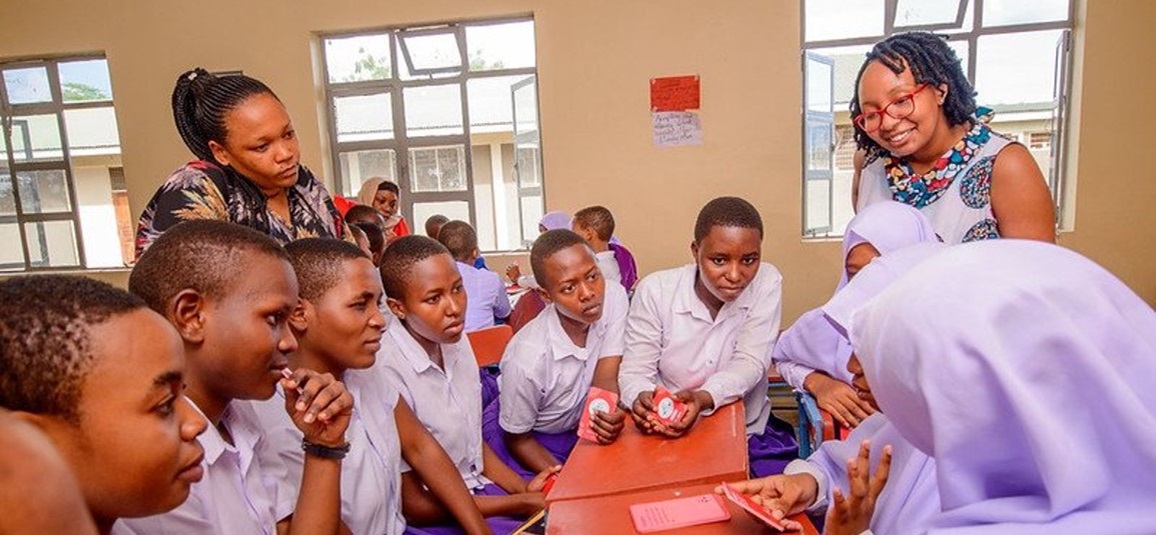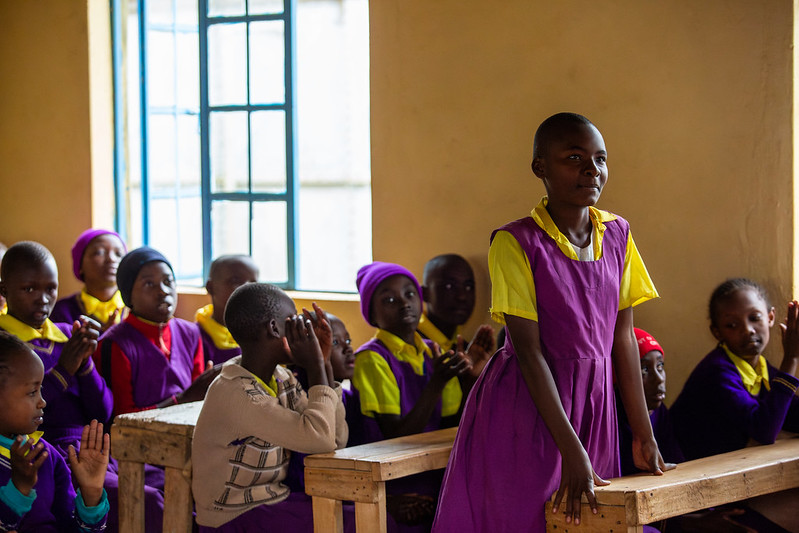
About the Together Women Rise Grants Program
The Together Women Rise Grants Program has two key components that support our overall mission to achieve global gender equality. Featured Grants are largely focused on delivering direct services by funding grassroots organizations that empower and support women and girls in low-income and marginalized communities in the Global South. Our Transformation Partnerships are designed to invest in areas where we can make the biggest impact on achieving global gender equality by addressing the root causes of gender inequality.
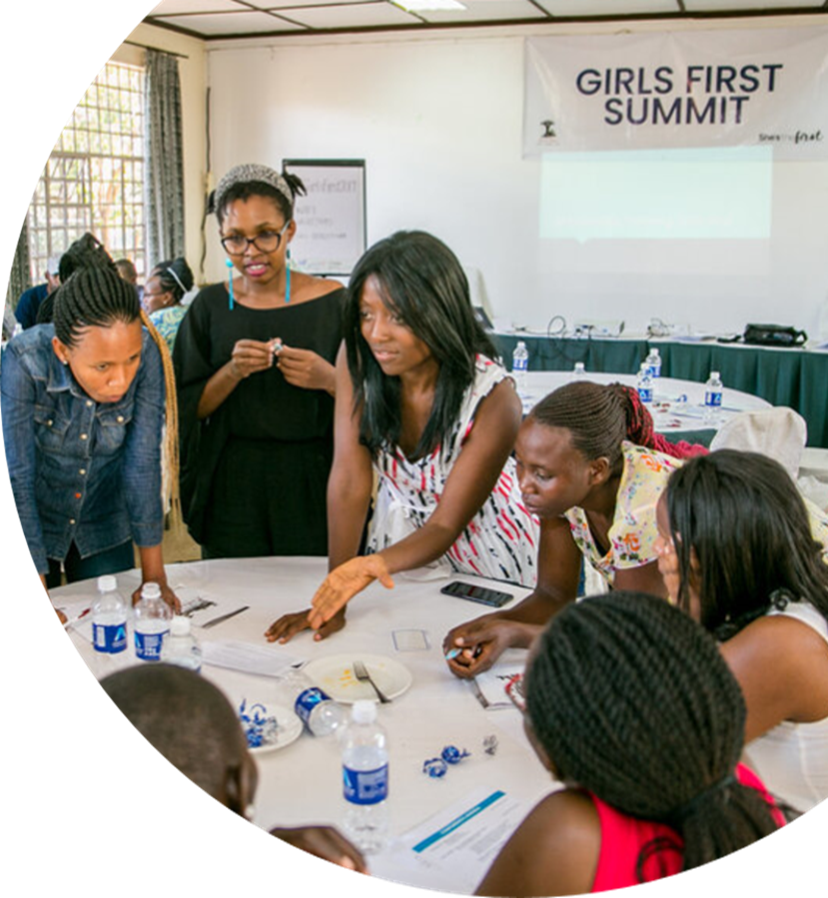 Featured Grants may include:
Featured Grants may include:
- Project/Program grantsfund a specific project or program with particular deliverables for a specific timeframe; or
- General Operations grantsto cover an organization’s day-to-day, ongoing expenses, such as salaries, utilities, office supplies, and more; or
- Capacity-building grants to strengthen an organization’s systems and thereby increase its effectiveness.
Through our Featured Grants Program, we highlight a different organization/project each month, providing a variety of learning materials on the issue and how the grant will be used. The following is information on the grant we are featuring for October 2024.
The Global Issue
Unstoppable: Building Girls’ Agency & Power
|
“Achieving women’s empowerment remains one of humankind’s greatest challenges and, at the same time, an immense opportunity to realize humankind’s full potential.” Audrey Azoulay, Director-General of UNESCO, 2024 |
Girls can’t be what they can’t see. Too often, that means that a future in which education, agency over their future, and having a voice for change is just a dream.
In West and Central Africa specifically, adolescent girls face multiple challenges that overlap and put their rights and well-being, including health and education, at risk. But this situation is repeated in many countries, even in those that have legal protections against gender-based violence (GBV), female genital mutilation/cutting (FGM/C), and child marriage. If girls do not know their rights and if they are not empowered to assert them, the law often makes little difference.
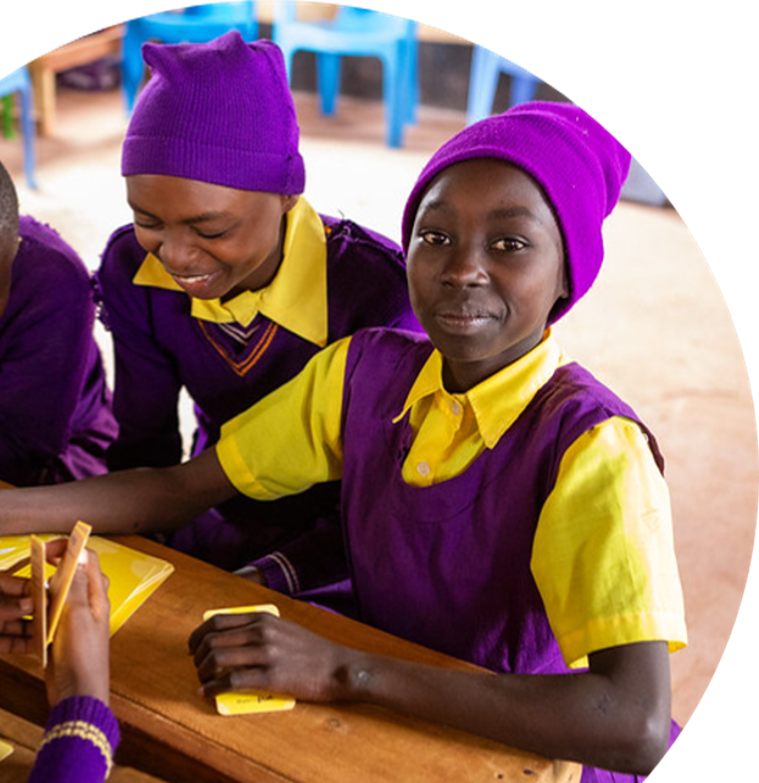 The facts are brutal: 12 million girls were married in 2022, and as a result of the pandemic’s continuing effects, as many as 10 million more worldwide are at risk of child marriage in the next 10 years. And though the tide is turning, millions of girls remain at risk for female genital mutilation/cutting. Worldwide, 80% of girls complete primary school but only 40% complete upper secondary school. Global progress has been significant, but it remains uneven and faced many setbacks during the pandemic. According to UNESCO, 122 million girls remain out of school globally – despite the fact that education was declared a human right in 1948.
The facts are brutal: 12 million girls were married in 2022, and as a result of the pandemic’s continuing effects, as many as 10 million more worldwide are at risk of child marriage in the next 10 years. And though the tide is turning, millions of girls remain at risk for female genital mutilation/cutting. Worldwide, 80% of girls complete primary school but only 40% complete upper secondary school. Global progress has been significant, but it remains uneven and faced many setbacks during the pandemic. According to UNESCO, 122 million girls remain out of school globally – despite the fact that education was declared a human right in 1948.
Throughout the world and particularly in the Global South, women – whether legally or practically or both – lack the same protections and opportunities as men. Globally, when safety from violence and access to childcare are considered, women have less than two-thirds the rights of men. In no country is equal opportunity a reality.
Every girl deserves to be respected and heard. But in communities across the world, girls face barriers to achieving their basic human rights. The negative consequences of these barriers are well established – an early end (or no access at all) to formal schooling, early marriage and pregnancy, gender-based violence, and economic insecurity for them and for their children. How can these challenges be overcome? One approach is to invest in programs that teach girls to speak up, assert their rights, and make informed choices about their lives. Women living in vulnerable communities are leading promising interventions for girls through community-based organizations, like mentorship groups that support girls’ agency and access to school. Educated girls marry later, have fewer and healthier children, have lower rates of child or maternal mortality, earn higher incomes, help make decisions that affect their own well-being and that of their families.
When a girl is educated, respected, and heard, she is unstoppable.
|
In the United States, nearly half of students in grades 7-12 experience sexual harassment…girls are more likely than boys to say sexual harassment caused them to have trouble sleeping, not want to go to school, or change the way they went to or home from school. |
About Our Grantee
In line with the celebration of International Day of the Girl Child on Oct. 11, Together Women Rise is funding a $50,000 Featured Grant to She’s the First this month. This will be a general operations grant that supports the overall work of the organization in multiple countries.
Learn more about how Together Women Rise will recognize International Day of the Girl Child here.
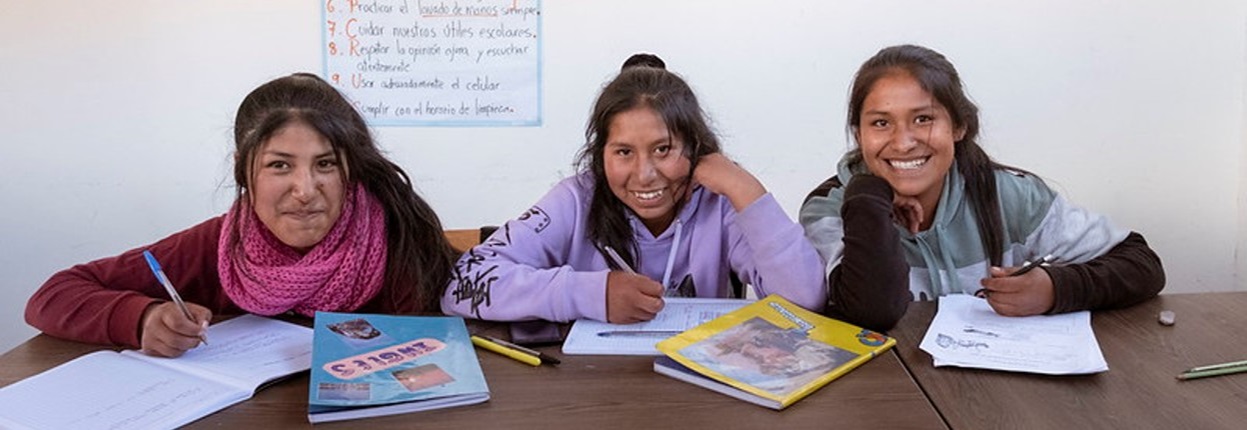
She’s the First
|
She’s the First uses girl-centered design – “nothing about us without us” – to build girls’ power. |
It started with a video. She’s the First launched on Nov. 1, 2009 when co-founder Tammy Tibbetts made a video for social media that she hoped would inspire and motivate her generation to support girls’ education. It worked – co-founder Christen Brandt joined her mission and the two started She’s the First. The organization started as an awareness campaign and evolved into a global non-governmental organization (NGO) with offices in the U.S. and Kenya.
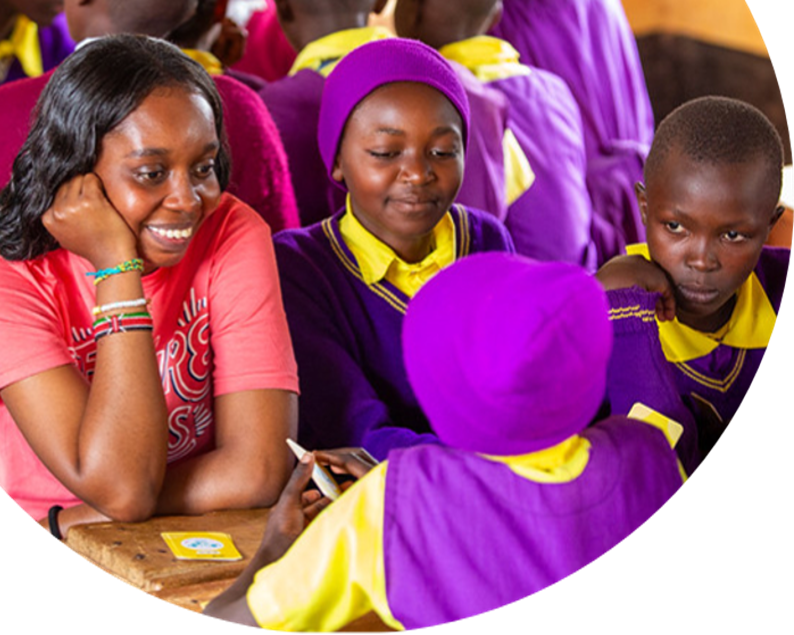 She’s the First teams up with grassroots leaders to make sure girls everywhere are educated, respected, and heard. Grassroots leaders include girls who are organizing peers in their area to stand up together for their rights (i.e., leading a farm project that raised funds for girls’ tuition in Uganda), and women who are running programs for girls in oppressed communities around the world.
She’s the First teams up with grassroots leaders to make sure girls everywhere are educated, respected, and heard. Grassroots leaders include girls who are organizing peers in their area to stand up together for their rights (i.e., leading a farm project that raised funds for girls’ tuition in Uganda), and women who are running programs for girls in oppressed communities around the world.
Despite the geographic diversity of the 10 countries served by She’s the First partners (Guatemala, Peru, The Gambia, Sierra Leone, Kenya, South Sudan, Tanzania, Uganda, India, and Nepal), women and girls face many of the same challenges: high poverty rates, cultural norms that prioritize boys’ education, early marriage, high rates of teen pregnancy, gender-based violence, and prevalence of traditional gender roles.
The organization’s work includes:
- Training girls as activists – She’s the First is the co-organizer of The Global Girls’ Bill of Rights and provides girls with platforms and resources they need to speak up for themselves in their home, school, and community.
- Strengthening community-based organizations in the Global South – Through the Girls First Institute, She’s the First teaches mentors and program leaders practical ways to support girls’ agency and design, implement, and evaluate girl-centered programs, particularly on topics related to sexual and reproductive health.
Funding girls’ mentorship and education programs.
Impact and Success
Equipping women-led organizations in sub-Saharan Africa, Latin America, and Southeast Asia with the resources to ensure girls worldwide can freely and safely exercise their rights, She’s the First directly impacts nearly 160,000 girls each year. She’s the First’s toolkits were downloaded nearly 90,000 times in 2023.
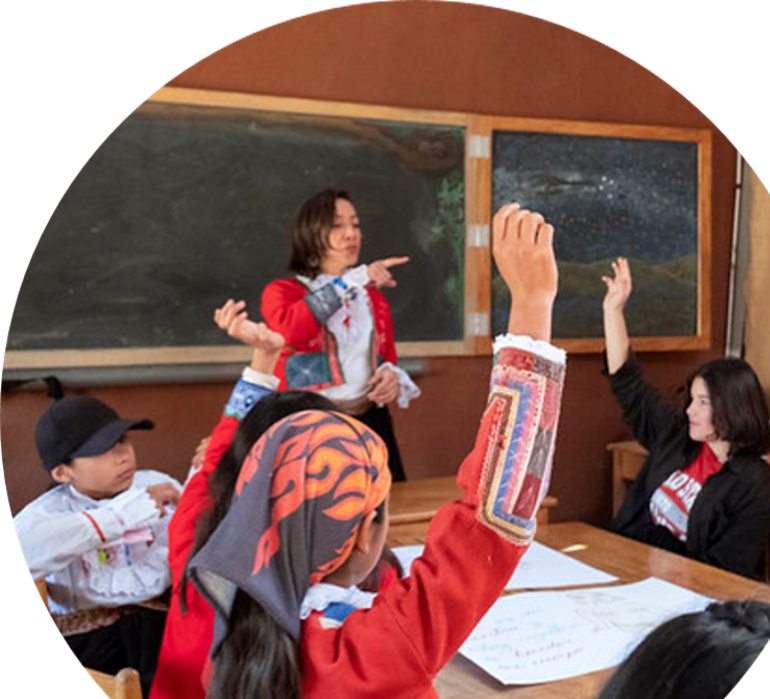 Over the past 14 years, She’s the First has created transformational outcomes for 563,741 girls by working alongside 685 community organizations in 42 countries. Girls become the first in their families to reach amazing milestones, knowing they are never the last.
Over the past 14 years, She’s the First has created transformational outcomes for 563,741 girls by working alongside 685 community organizations in 42 countries. Girls become the first in their families to reach amazing milestones, knowing they are never the last.
The organization is a founding partner of Michelle Obama’s Girls Opportunity Alliance, a nominee for the UNESCO Global Prize for Girls’ and Women’s Education, a Diane von Furstenberg Award winner, and a United Nations Economic and Social Council (ECOSOC) member with consultative status at the United Nations, as well as a co-organizer of The Global Girls’ Bill of Rights.
LEARN MORE ABOUT SHE’S THE FIRST
How the Grant Will be Used
Together Women Rise’s $50,000 Featured Grant to She’s the First will support the organization’s general operations, with a focus on its Partner Coalition, which is made up of 15 community-based organizations* (including MAIA, a past Together Women Rise grantee) in 10 countries. This network of independent organizations serves girls in East and West Africa, Latin America, and South-Eastern Asia and is a cohort that has the shared goal of increasing girls’ agency through mentorship programs.
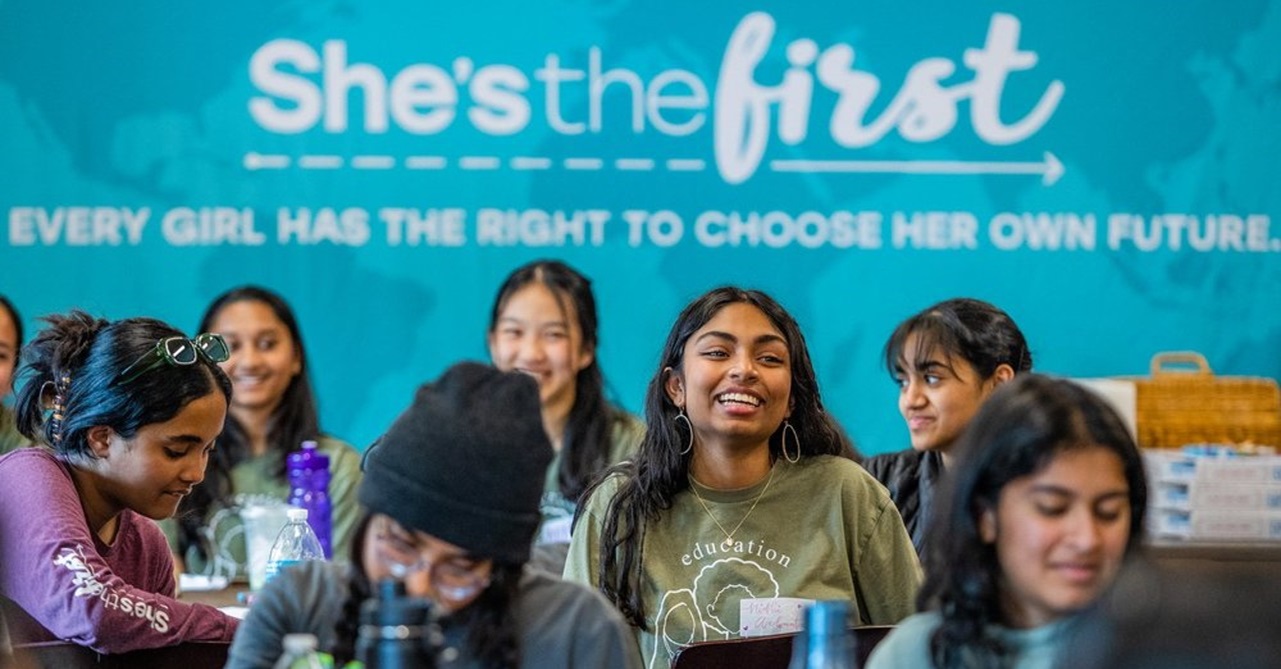
The value of the Partner Coalition is that grassroots leaders get to learn and grow alongside each other, while each organization also receives a grant and hands-on support from She’s the First. At these organizations, She’s the First attends in-person site visits, provides regular 1:1 office hours on feminist program development, sustainability, and evaluation, and hosts group online training sessions as well as in-person training. The coalition members share knowledge and work together on deciding goals and outcomes. In addition, partners have access to She’s the First’s Girls First Network, its public resource community for girl-centered organizations, which provides additional online training sessions. Organizations that partner with She’s the First have demonstrated lower rates of school dropouts and teen pregnancy, compared with their peers, which they largely credit to She’s the First’s resources and girl-centered design methodology.
In communities where girls’ needs are often the last priority, funding from Together Women Rise will enable She’s the First to provide women leaders with tools to increase girls’ rights, safety, and access to education.
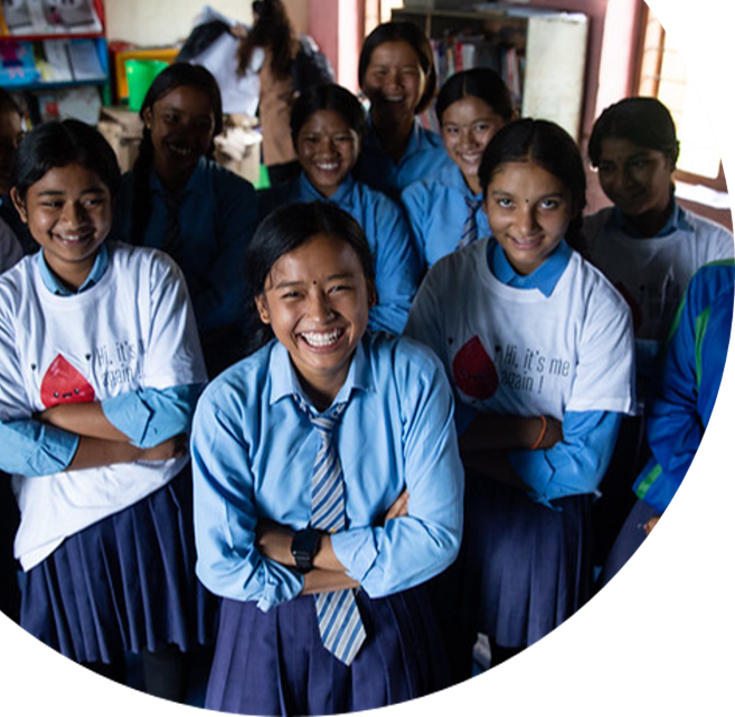 She’s the First invests in education and mentorship programs for the most vulnerable girls through grants, trainings, coaching, and custom-made toolkits. Its strongest partners are community organizations, led by women. Simultaneously, girls learn about their rights and how to speak up for themselves at home, school, and in their community.
She’s the First invests in education and mentorship programs for the most vulnerable girls through grants, trainings, coaching, and custom-made toolkits. Its strongest partners are community organizations, led by women. Simultaneously, girls learn about their rights and how to speak up for themselves at home, school, and in their community.
The Girls First Institute is a skills-building, outcomes-improving hub for women who uplift girls in their communities. Led by and for women from the Global South, it encompasses grantmaking, training programs, and resources for mentors. One example: the 2023 launch of “What Would You Do?” a game-based toolkit structurally based on the popular Apples to Apples card game. It encourages girls to explore what healthy relationships look like through play, which is a natural state for girls. Through a variety of situational prompts about relationships that present tricky power dynamics, the girls take turns positing different responses and discussing – with the guidance of their mentor/educator – the best ways to maintain safe boundaries and healthy relationships. The game was designed in part by girls themselves to ensure scenarios and responses were realistic to the experiences of girls. In its first months of use, the game had concrete impact, including discovering cases of sexual harassment and attempted suicide with the opportunity to intervene and help.
She’s the First’s goal is to strengthen girl-centric community-based organizations in areas with high need, thereby supporting girls’ increased access to education and mentorship programming. As a result, girls learn about their rights, have opportunities to become leaders, and exercise more decision-making power over their future. The girls are often the first girls in their families to pursue higher education, express their rights, or delay marriage or pregnancy.
Girls face many barriers to self-actualization, including extreme poverty, harmful family traditions, as well as dangerous rural living conditions compounded by climate stress and gender-based violence. By strengthening grassroots girl-centered programs, She’s the First helps build a safer, more inclusive environment for girls everywhere to choose their own future.
* MAIA (Guatemala), Kusi Kawsay Association (Peru), Sacred Valley Project (Peru), Starfish International (The Gambia), Project Pikin (Sierra Leone), Msichana Empowerment Kuria (Kenya), Savana Kitui (Kenya), Caring Hearts Initiative for Community Development (South Sudan), Crown the Woman (South Sudan), Girls Livelihood and Mentorship Initiative (Tanzania) Arlington Academy of Hope (Uganda), Developmental Association for Human Advancement (India), Sahas Foundation (India), Shequal Foundation (Nepal), and The Small World (Nepal)
Budget
Since this is a general operations grant, there is not a specific project budget. Learn more about the financials of She’s the First in its annual report.
Why We Love This Project/Organization
She’s The First works with community-based organizations to do training that is accessible, relevant, and powerful for girls, including using games to talk about uncomfortable topics. It is an impressive model – creating coalitions and designing programs for what is needed by partner organizations, such as a focus on sexual reproductive health. She’s the First makes materials available online for girls and teachers. Girls have true agency here – the organization also includes girls on its board of directors.
Impact Story
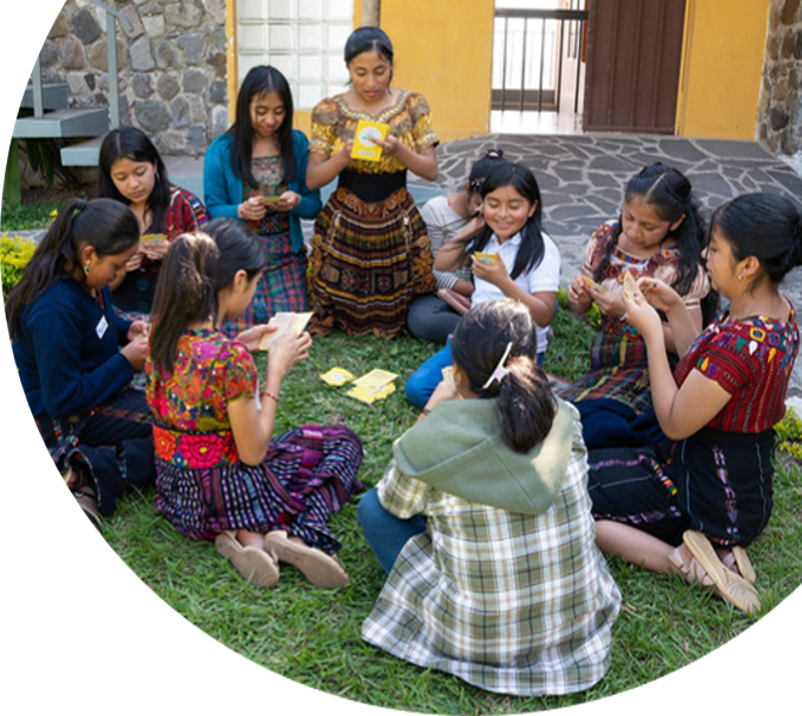 Meet Adela
Meet Adela
During times of economic and political crisis, girls often pay the highest price, too often in the form of child marriage. Adela witnessed this first hand.
“When I was little, the girls in my community that were 12 or 13 years old went out to look for husbands and they were not given the opportunity to study or go to school,” Adela says. “It affected them very much to not know how to read or write and they only knew how to take care of their children.”
Things are different for Adela, who sits on the Girls Advisory Council at She’s the First and graduated high school this year at MAIA, one of She’s the First’s longest term partners in Guatemala.
“Before MAIA, I already had the dream of continuing studying and graduating from high school, but I didn’t know when or how I would do it,” she said. “Here, there was a great team of people who helped me and showed me that there were different ways to rewrite my own story. Now I know who I was, who I am, and who I want to be. I know my roots and have a better vision of my life. My future plans are to continue to university, have a formal job, and improve my English. I want to work in projects that involve volunteering or give workshops about leadership and girls´ rights to Indigenous young people. I want to be a leader in my community and to become a famous writer.”
For now, Adela is already giving back. She works for MAIA and founded a project called “Up and Up,” where she mentors other girls on their rights and learning to raise their voices.
|
“Now I know who I was, who I am, and who I want to be.” |
“In MAIA, I learned that every day I can evolve, and with empowerment I can empower other women,” Adela said.
She’s the First provides resources and support to uplift programs like MAIA resulting in increased feminist mentorship opportunities for girls globally. Together, they are able to expand access to education to reduce child marriage and teen pregnancy. Thanks to this partnership, things can be different for the next generation of girls.
Learn More
Source Materials
The Global Girls Bill of Rights
Glossary
FGM/C: female genital mutilation/cutting
GBV: gender-based violence
NGO: non-governmental organization
The Global South: The Global South includes the countries that experience higher levels of poverty, income inequality, lower life expectancy, and harsh living conditions compared to the wealthier nations in the “Global North” – located mostly in North America and Europe. The Global South primarily includes many of the countries in Africa, Latin America, the Caribbean, Asia and the Pacific, and the Middle East
